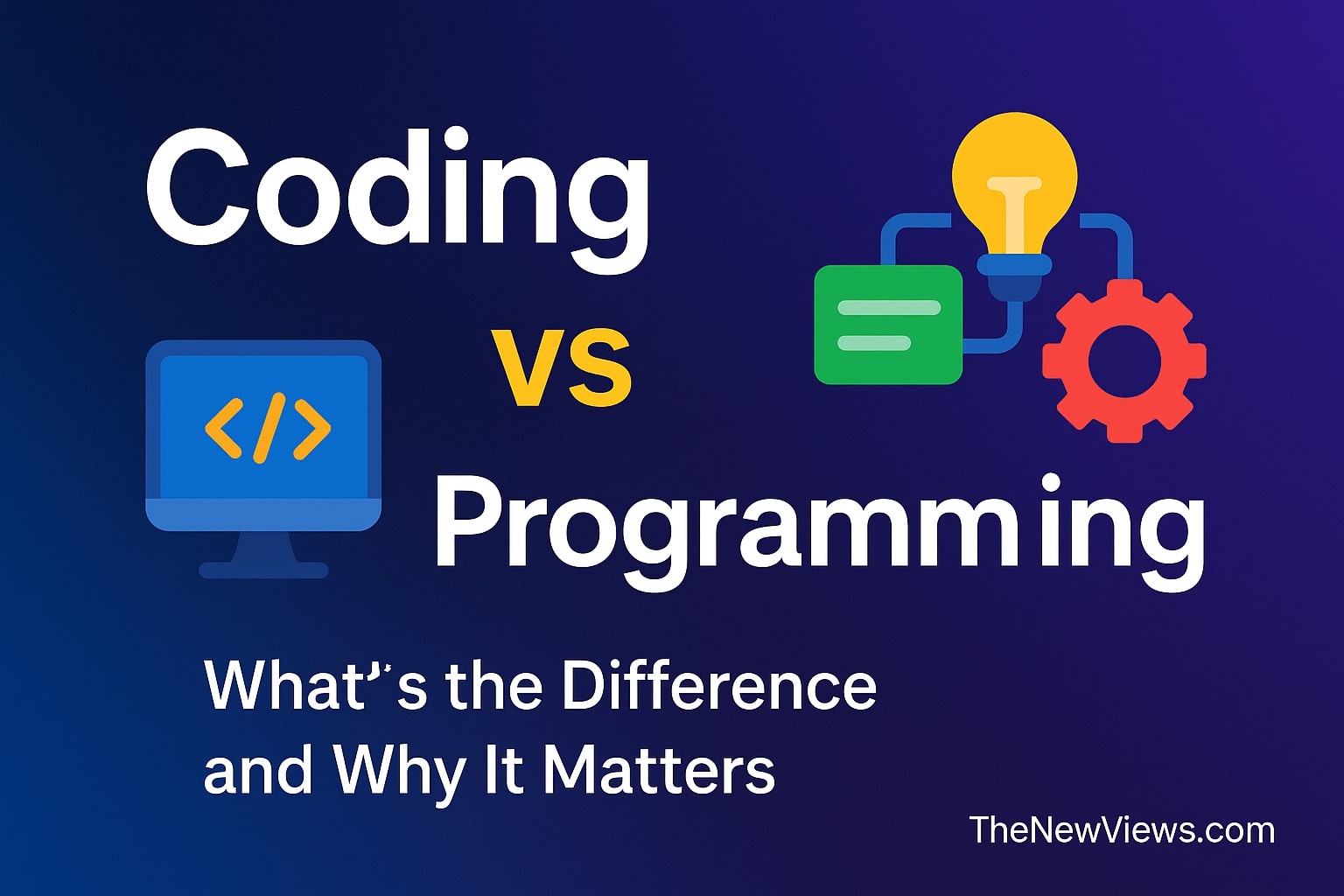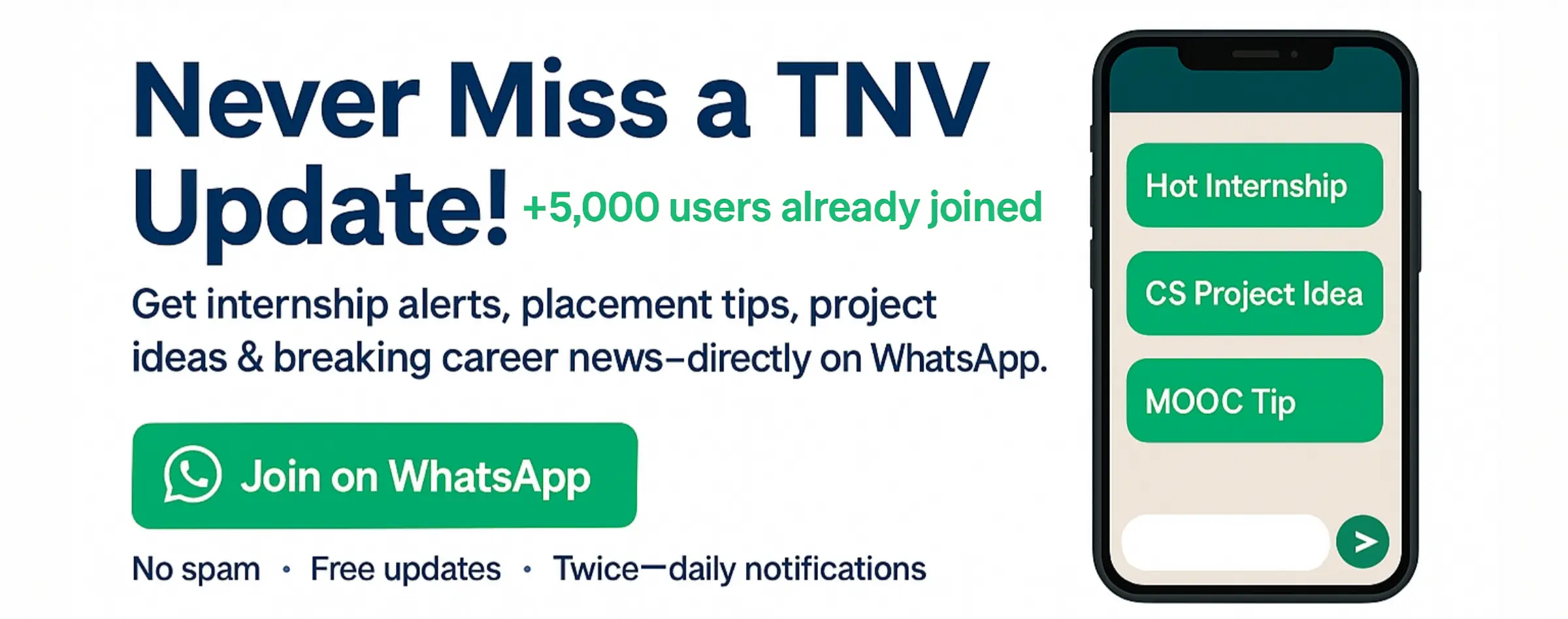Coding vs Programming—the debate and confusion never end. While many use the terms interchangeably, they are not the same. If you’re a student, beginner, or job seeker aiming for a tech career, knowing the difference between coding and programming can save you time, guide your learning, and improve your job prospects.
So, what’s the difference between coding and programming?
Coding is the process of translating human instructions into a language computers understand.
Programming is the broader process that includes coding, but also involves problem-solving, designing algorithms, testing, debugging, and building complete software systems.
What is Coding and How Does It Work?
Coding is the act of writing instructions in a specific programming language to perform a task.
Think of it as writing the ingredients and steps for a recipe. You’re not inventing the dish—you’re just documenting how to make it in a format others (or machines) understand.
Real-world coding tasks:
- Writing a JavaScript function for a website button
- Creating a Python script to automate file naming
- Building an HTML page layout
Common coding languages:
- HTML/CSS (web)
- Python (scripting and data)
- JavaScript (frontend)
- Java, C++, or C# (application development)
Coding is execution-focused—you receive a task and write the instructions to complete it.

Also Check:
What is Programming and Why Is It More Than Just Coding?
Programming is a larger process that involves:
- Understanding the problem
- Designing the logic or flow
- Writing the code (coding)
- Testing and debugging
- Optimizing performance
- Deploying and maintaining the solution
For example, if coding is writing a sentence, programming is writing an entire book—with a plot, characters, structure, editing, and publishing.
What programmers usually do:
- Plan features and software flow
- Design databases and data structures
- Integrate third-party tools or APIs
- Write modular and maintainable code
- Handle testing and continuous deployment
They don’t just solve one task—they build complete solutions.
Top Differences Between Coding and Programming (With Table)
Here’s a clear breakdown of how they differ:
| Category | Coding | Programming |
|---|---|---|
| Definition | Writing code in a specific syntax | Full process of building software |
| Focus | Translating logic to syntax | Solving problems and building systems |
| Skills Required | Syntax knowledge, debugging basics | Logic, architecture, testing, and deployment |
| Tools Used | Text editors, compilers | IDEs, version control, debuggers, deployment tools |
| Learning Curve | Beginner-friendly, easier to start | Requires critical thinking and structured learning |
| Typical Job Roles | Frontend dev, script writer, junior developer | Software engineer, full stack dev, app developer |
Benefits of Learning Programming Over Just Coding
While coding gets you started, programming gives you the power to build real-world apps and systems from scratch.
Why learn programming:
- Deeper understanding of how software works
- Ability to solve bigger problems, not just fix bugs
- High-paying jobs in product-based companies and startups
- Scalable skills for backend, cloud, AI, or data roles
- Freedom to build complete projects, not just UI elements
Learning programming expands your mindset from “how to code this” to “how to solve this completely”.
Career Opportunities: What Can You Do With Each Skill?
If You Stick With Coding:
- Frontend Web Developer – HTML/CSS/JavaScript
- Junior QA/Automation Engineer – Script-based testing
- Email Developer – Responsive email templates
- Freelance Website Editor – Basic WordPress or Wix tasks
If You Learn Programming:
- Software Engineer – Backend APIs, system architecture
- Full Stack Developer – Web, database, logic, and deployment
- App Developer – iOS, Android, or cross-platform apps
- DevOps Engineer – CI/CD, automation, containerization
- AI/Data Developer – Programming with ML libraries and tools
Learning Roadmap: How to Learn Coding and Become a Programmer
Here’s a structured learning path that transitions you from coder to programmer:
Step 1: Learn Coding Basics
- Start with Python or JavaScript
- Learn syntax, variables, loops, and conditionals
- Build small projects like a calculator or portfolio
Step 2: Practice Real Logic
- Solve problems on HackerRank or LeetCode
- Learn data structures like arrays, lists, trees
- Understand algorithms like searching, sorting, recursion
Step 3: Explore Full Programming Concepts
- Learn object-oriented programming (OOP)
- Understand API integration, error handling, and file systems
- Practice building CRUD apps with Node.js or Django
Step 4: Build Real Projects
- Full-stack web apps using React + Express + MongoDB
- Mobile apps with Flutter or React Native
- Host your projects on GitHub and deploy using Vercel or Netlify
Check Out:
FAQs About Coding vs Programming (for Students & Beginners)
Is coding easier than programming?
Yes. Coding is simpler because it focuses only on writing instructions. Programming includes logic, planning, testing, and system design.
Can I get a job if I only know coding?
You can land entry-level jobs (e.g., frontend or assistant dev roles), but growth will be limited without programming skills.
Do I need a CS degree to be a programmer?
No. Many programmers are self-taught or come from bootcamps. What matters most is your problem-solving ability and portfolio.
Which language should I start with?
Start with Python for general-purpose coding, or JavaScript if you’re interested in web development.
How long does it take to go from coder to programmer?
With consistent effort, practice, and projects—6 to 12 months is realistic for most people.
Is programming just for software engineers?
No. Programming skills are used in data science, cybersecurity, automation, finance, and even non-tech industries.
Final Takeaway
Coding is the gateway, programming is the journey. If you’re starting in tech, begin with basic coding, but don’t stop there. Dive deeper into logic, structure, and architecture to become a programmer who can build, fix, and improve real software systems.
Whether you want to freelance, join a startup, or crack a FAANG-level role, programming is the skill that truly unlocks the future.
